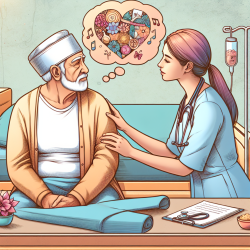Understanding the Risks: Uncertified Medical Practices and Their Consequences
In the ever-evolving field of healthcare, awareness and education are paramount. A recent case study, "Detrimental Pneumoperitoneum and Bowel Necrosis Secondary to Dilatation and Curettage: Necessitating the Importance of Healthcare Awareness," highlights the severe consequences of uncertified medical practices. This blog aims to delve into the findings of this research and offer insights on how practitioners can enhance their skills and knowledge to prevent such detrimental outcomes.
The Case Study: A Wake-Up Call
The study presents a poignant case of a 23-year-old woman in India who underwent a dilation and curettage (D&C) procedure by an uncertified practitioner. This led to severe complications, including pneumoperitoneum and bowel necrosis. The patient, initially presenting with abdominal pain, was later found to have a perforated uterus and strangulated bowel, necessitating emergency surgery.
Key Takeaways for Practitioners
For healthcare professionals, this case underscores the critical importance of certified medical training and the potential risks associated with unqualified practices. Here are some key takeaways:
- Certification and Training: Ensure all medical procedures are performed by certified professionals to minimize risks and complications.
- Patient Education: Educate patients about the importance of seeking care from qualified healthcare providers.
- Awareness Campaigns: Advocate for increased awareness and education in rural and underserved areas to prevent similar incidents.
Encouraging Further Research
This case also highlights the need for further research into the prevalence and impact of uncertified medical practices, particularly in rural and developing regions. By understanding the scope of the issue, healthcare professionals can better advocate for policy changes and educational initiatives to improve patient safety.
Conclusion
The case study serves as a stark reminder of the potential dangers of uncertified medical practices. By prioritizing education, certification, and awareness, healthcare professionals can help prevent similar tragedies and improve patient outcomes. For those interested in exploring the full research paper, you can access it here: Detrimental Pneumoperitoneum and Bowel Necrosis Secondary to Dilatation and Curettage: Necessitating the Importance of Healthcare Awareness.










